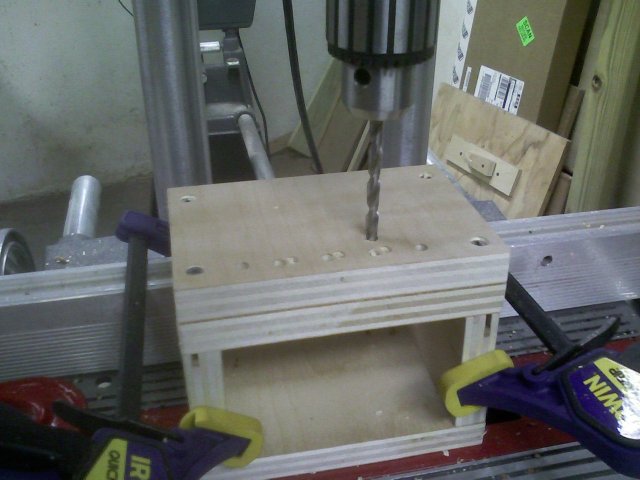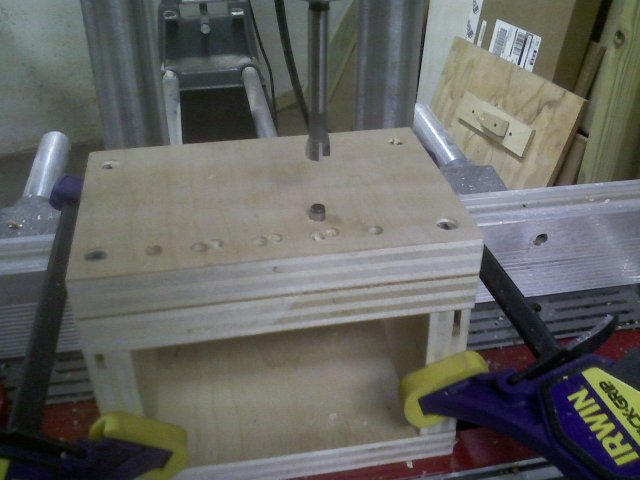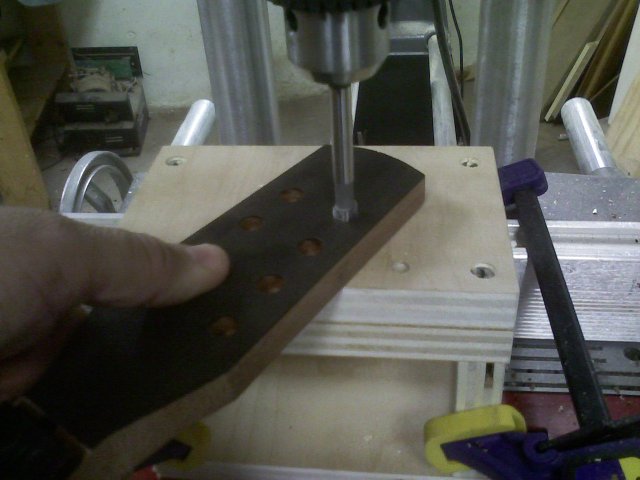Even with a drill press & a good Forstner bit, I've never had much luck enlarging holes
Lose the forstners and brad point bits, and use a plain 'ol twist drill. St the speed to the fastest setting, and drill you some nicely lined up holes...
Mike, I like your method. Works like a charm. While you have the hole spacing jig already, if you ever need one of a different spacing, use a similar technique to what you just did for enlarging. Drill two holes, spaced as yo need. test fit them to the tuners or whatever, until you have them perfect. Now, lightly clamp this to the drill press table, and lower the bit(not running!!!) into one of the holes, and let the piece line itself up. Now, clamp tightly. Test to see that the bit is perfectly centered in that hole. This is now your jig! In use, you'll drill the first hole in the series by lining it up to a punch mark of whatever, then, with a pin inserted in the second hole in the jig, you'll set the first drilled hole into that pin, and drill the next one. Repeat until done. Thats it! Oh, you want a fence of some sort to keep the holes aligned, also, but that's a given...
Practice in scrap and test fit the tuners before committing to good wood.




